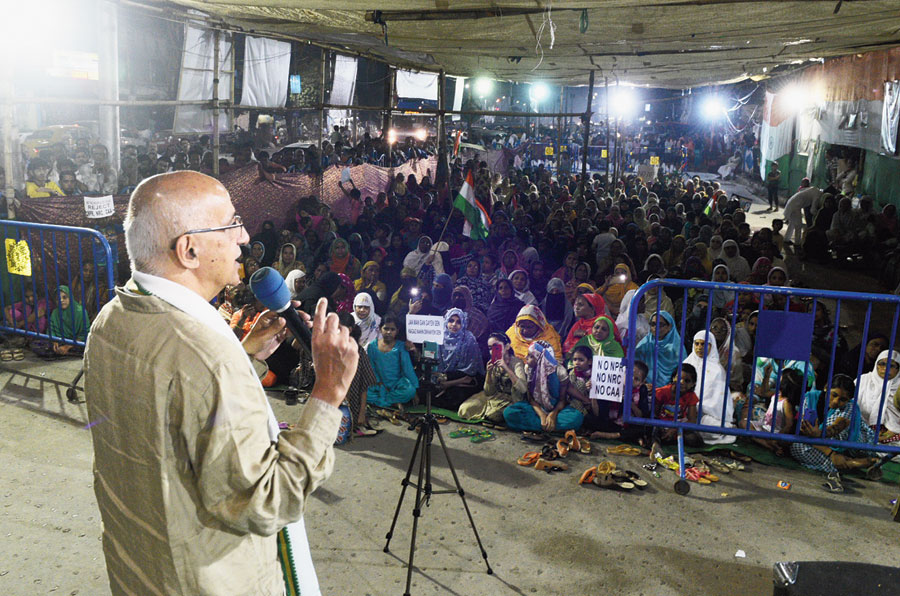People should say “hum kagaz nahin likhayenge (we will not let you write our details)” till they are assured that data for the National Population Register (NPR) will not be collected during Census work, social activist Harsh Mander said.
Prasenjit Bose of the Joint Forum Against NRC, which organised the gathering at Beniapukur where Mander made the statement, urged people to pressure elected representatives to organise meetings between citizens and enumerators before census work starts in a neighbourhood.
Bose said citizens must seek an assurance that enumerators would restrict themselves within the Census questionnaire and not ask any NPR-related questions.
“All of us have to be firm on one thing: ‘Hum kagaz nahin likhayenge’. The need for kagaz dikhana (showing documents) would come much later. First, the enumerators would come and ask for some details. A common man would not be able to distinguish between what detail would be used for Census and what is being taken for NPR,” Mander, the founder of Karwan-e-Mohabbat (Caravan of Love), told a gathering of over 200 men and women at Milli Al-Ameen College’s auditorium on Saturday evening.
The slogan “Hum kagaz nahin dikhayenge (we will not show documents)” has become a favourite of those protesting the Citizenship (Amendment) Act, NPR and the National Register of Citizens (NRC).
Mander suggested a tweak to the slogan to make the gathering understand how NPR data could be collected even without many realising it. “How many people would be able to understand the difference between Census question and those of NPR?” he asked.
The fear has arisen because the Centre has said it would prepare the NPR along with the house listing work of Census, which will start in April, Bose said.
A gazette notification by the Registrar General of Citizen Registration in July 2019 reads: “Central Government hereby decides to prepare and update the Population Register and the field work for house to house enumeration throughout the country except Assam… between the 1st day of April, 2020 to 30th September, 2020”.
Bose said this was the reason why people must speak to MPs, MLAs and councillors to ensure that only data for Census is collected. “Meet elected representatives in your areas. Tell them to arrange a meeting with the enumerators where common citizens would be present. At the meeting, ask the enumerators to give an assurance that they would be collecting data for Census only. We should not oppose Census. But we should not allow the Centre to collect data for NPR along with the data for Census,” he said.
Both speakers stressed the need to keep the protests peaceful because any violence would provide the government with an excuse to crush the movement ruthlessly.
Mander said that according to the 2003 amendment to the citizenship act, the NRC would be prepared to identify illegal migrants. “The rules that were made subsequent to the act said that in order to prepare the NRC, the government would prepare an NPR, where government officials can label someone as an illegal resident or doubtful citizen,” he said.
Both speakers said that once NPR was allowed, a citizen’s fate would be at the mercy of officials.











